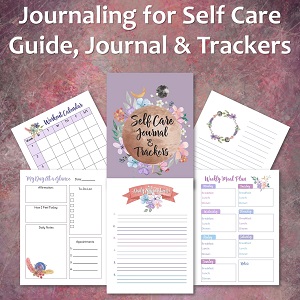 For a growing number of people, “living well” is being redefined. Instead of filling your life with material goods and splurging on luxury items, to them living well means living a life that you love.
For a growing number of people, “living well” is being redefined. Instead of filling your life with material goods and splurging on luxury items, to them living well means living a life that you love.
It’s about living your life on your own terms, free from the constraints of having to fit into a predetermined category, career, or lifestyle.
Living well means designing a life that is rewarding, satisfying, and focused on supporting who you are and what you want from this life.
Most people come to this way of thinking after finding themselves surrounded by items that don’t really make them happy. They may have the prettiest house, the best car and the latest designer clothes. But if they’re not happy, then it’s not serving them.
A shift is needed and it begins by living well with what you have. This may mean simplifying. It might mean making major changes. Ultimately, it’s about being happier and creating a life that supports you to be you.
This report is a collection of tips, steps, and ideas to help you start finding your way to a life that serves you – a life that supports you to be happier with who you are and what you have.
The tips are divided into categories to help you organize your thoughts and start in a place that feels right to you. The categories include:
- Asking questions
- Making room
- Setting goals and changing habits
- Moving forward
Asking Questions
The first step to knowing what you want and who you are is to start asking questions and providing honest answers. Consider grabbing a pencil and paper or a journal and writing down the questions and your answers.
What do you like about your life?
Take a look at your life. Explore the things that you do, where you work, and how you spend your time. Take a look at the people in your life and the items that you’re surrounded by. What makes you happy? What do you love about your life? If you had to prioritize three aspects of your life, what would they be?
Answering this question will help you begin to see what’s important to you. You might discover that some of the things that you love most are things that you spend very little time on. For example, you may love to travel but realize that traveling is at the bottom of your current priority list.
What could you do without?
Now take a look at your life and explore the elements of your life that you could do without. These might be people, hobbies, habits, and material items. You may find that you are surrounded by things and people that you really don’t care for.
Answering this question will highlight the aspects of your life that may be getting in the way of spending your time and energy on things you love.
How do you spend your time?
Do you spend your time on activities and people that you find rewarding and fulfilling? Or do you spend your time on activities that make you unhappy? Chances are it’s a little bit of both. Spend a week or so tracking how you spend your time. You might even document how much time you spend on each activity.
Answering this question will help you begin to see how you can make changes to your life so that you’re able to spend more time on things that make you feel happy.
For example, you might find that you spend eight hours a week cleaning your home and you’d much rather spend that time writing a mystery. You can then begin to find ways to make changes to your lifestyle so that you’re supported to write more and clean less.
What are your strengths and weaknesses?
Take a little time to assess your own personal strengths and weaknesses. This information will also support you to begin to make positive change in your life.
For example, you might know that you are disorganized. You can then take steps to find solutions to help you be more organized, assuming that organization supports you to live a happier life.
What does a perfect day look like?
Imagine your perfect day. We’re not talking about a day being fed bonbons on the French Riviera. That sounds like a perfect day for sure, but it’s not the norm. We’re talking about a normal perfect day for you.
For example, a normal perfect day for someone who aspires to write mysteries might start with an hour of writing, a day at a job they love, and then time in the evening with loved ones relaxing, talking, laughing and reading.
What currently supports you?
Take a look around you. What currently supports you to move your life toward your description of a perfect day? This can be anything from material possessions to people.
For example, the person who wants to write more and clean less might be supported by a partner who is happy to clean a little more, or a vacant space in the house might be easily converted to a writing office.
What doesn’t support you?
Taking a look at your surroundings in a different manner will help you see what’s getting in your way. A large house that needs a lot of cleaning may be something that doesn’t support the aspiring writer.
A giant car payment for the person who wants to cut back on overtime and work less is another example. A fifty dollar a week coffee shop habit for the person who is struggling to pay off debt and obtain financial freedom is a third example. You get the idea. What’s preventing you from living your perfect day?
These questions are difficult to answer and it may take you a few days, even a week or two, to answer them all as completely and honestly as possible. Once you’ve answered the questions, you can begin to start making changes to your life.
Next, let’s take a look at the concept of making room in your life so that you can live well with what you have.
Making Room
Making room is often about decluttering. You may have a house full of stuff and if you look at those belongings honestly, you may realize that they don’t serve you. They don’t make you happy. They don’t solve any problems and they may actually create problems for you.
Clutter is actually stressful, so let’s talk about how you can begin to get rid of what’s getting in your way.
Start Slowly
It’s tempting to just rent a dumpster and start getting rid of your stuff. And if that’s really what you want to do, okay. However, a better approach is to systematically go through your home room by room. Take time to consider whether something supports you or whether it’s time to get rid of it.
The reason to start slowly is that often when people purge their home in a weekend, they get rid of things that they later need to replace. That’s a waste of your time and money.
Room by Room
Go through your home room by room. If you’re feeling ambitious then start in your most cluttered room. It might be your kitchen or your bedroom.
The Four Pile Approach
Many organization experts recommend making four piles. They are: Keep, Donate, Toss, and Sell. The items you keep are the items that you love, that support you to live your perfect life, and that you know you’ll be using and loving years from now.
Donate items that are in good condition. Toss the broken stuff and the stuff that you know people won’t really want. Sell the items that you can get good money for. Consider holding a yard sale or listing the items on an auction site.
The 10-10-10 Approach
Another approach is to try to donate, sell, and toss ten items each week. Or you can strive to get rid of one thing each day. The approach you take depends largely on your current clutter and your needs.
Create Systems
Once you’ve decluttered, it’s important to make sure that there is an organized space for everything that remains. This means making sure your closets, pantry, and other storage areas are organized and that they support you.
You might wonder why decluttering is so important. Essentially, it gives you a clean slate. It allows you to get rid of the things that are not supporting you to live your best life and it forces you to truly prioritize on the things that you want and need in your life.
In the next section we’ll take a look at setting goals so that you’re able to live better with what you have.
Setting Goals and Changing Habits
After answering questions and decluttering, it’s time to begin making changes to your lifestyle – changes that help you love your life. Let’s take a look at some habits that you may want to embrace, and we’ll offer some goal-setting tips to help you get started.
Gratitude
One of the habits that will help you avoid focusing on buying new things, and instead support you to focus on loving what you have, is the gratitude habit. You can embrace gratitude in many different ways. You can start each day by thinking about all of the wonderful things you’re grateful for. You can start a gratitude journal and write in it every day. You can also start saying thanks at specific times during the day.
Replace Your Shopping Habit
How often do you find yourself shopping online? How many times do you buy something on a whim? For many, shopping is a habit and it leads to a home full of unwanted stuff. This is stuff that costs money and gets in the way of you living your ideal life.
There are several ways to become more aware of your spending habits. One of them is to simply stop shopping. Ban or block shopping sites on your computer. You can also find hobbies and activities that replace your shopping habit.
For example, instead of shopping on the weekends or surfing the net while sitting on the couch, start knitting, build a dresser, or join a local sports club. Keep busy so you’re not tempted to shop and spend.
DIY
If it’s broken, you throw it away, right? Not anymore. Instead of replacing items in your home and life that are in need of a little TLC, why not get creative and flex your skills.
DIY is a nice way to add some personality to your home, to provide you with a sense of satisfaction, and to keep items that you love in your possession. Of course, if you’re not handy, then by all means consider having the item repaired instead of throwing it away.
Finally, find and focus on your passions. Find activities and pursuits that make you feel happy and joyful. It can be anything from making homemade wine to writing travel books to building websites – and everything in between.
Living well with what you have isn’t just focused on clearing out material items; it’s also about clearing away the pursuits and tasks that don’t bring you joy. Sure, no day is without some menial tasks. However, if the bulk of your life is spent on pursuits that make you smile, then you’re living well.
Moving Forward
Once you’ve begun to envision a simpler life – one that is full of love, meaning and is defined by you as good living – then it’s time to start taking steps toward that vision. The first step is to commit to your path. If you want to live well with what you have, then you have to commit to it.
That may mean different things for different people. On a fundamental level it means not adding more clutter and distractions to your life. It may also mean making major changes to your life. For example, you might decide to downsize your home and/or move towns. Or start a new job.
Committing to changing your life is the first step, so what’s the second? It’s to start setting small goals to help you transition toward that life. Small goals might be anything, such as cleaning out your closet and only keeping clothes that you wear and love. It might mean taking a class that will help you start a new career. Start setting those goals and create a plan to follow through.
Finally, the third step is to begin living your life right now as if you’re already successful. You’ve envisioned your ideal day. You’ve made a list of the things and people that support you as well as lists about your strengths, weaknesses, and the things that don’t support you. You have a good idea about how you want to live your life.
Start living as if you’ve already achieved your goals. This is important because it causes a shift in your mindset. Instead of saying that you’re trying to live well with what you have, say that you are living well with what you have. Instead of saying that you want to write a mystery book, say that you are writing a mystery book. See the difference?
Approaching your life as if you’re already achieved your goals empowers you to actually take steps each day to make it true. When you cut down to the “essentials” and what’s most important to you in your life, you may be surprised at what it takes to make you truly happy.




